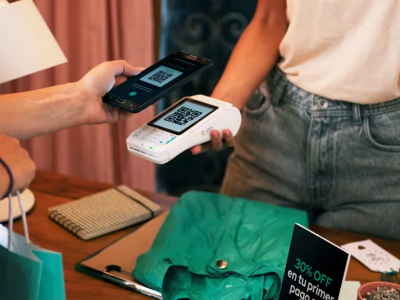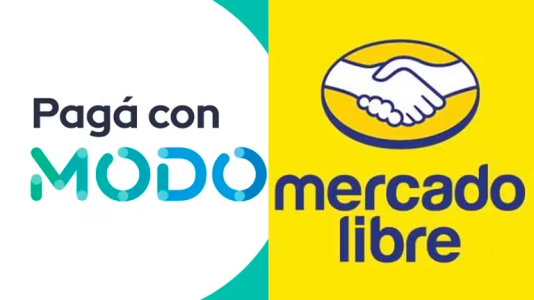All the Answers
Well-known member
Five keys to understanding the fight between Mercado Libre and traditional banks - Infobae

Source:

Cinco claves para entender la pelea entre Mercado Libre y los bancos tradicionales
La denuncia de Modo, la billetera de los bancos, ante Defensa de la Competencia endureció el conflicto y pone al Gobierno frente a un dilema complejo de resolver
May 07, 2024
The complaint of Modo, the banks' wallet, before the Defense of Competition hardened the conflict and puts the Government in front of a complex dilemma to resolve.
By Fernando Meaños

The umpteenth fight between Mercado Libre, the fintech paradigm, and Modo, the wallet created by traditional banking to compete with it, in this case for the implementation of the interoperability of QR card payments, promises to become the final battle. The complaint before the National Commission for the Defense of Competition presented by Modo and the harsh response that Mercado Libre made known last night allow us to glimpse a conflict that goes much further than the way Argentines use their digital wallets and credit cards. There are five unavoidable keys to understanding conflict.
-Why the banks denounced Mercado Libre. The fight between banks and Mercado Pago has been going on for a long time. But in this case, it skyrocketed because the company did not “open” its QR network, the most important in the country. Interoperability already works, and successfully, when QR payment is made with account-to-account transfers. But the conflict appears because a business that has a QR provided by Mercado Pago only accepts card payments via QR if the plastic is loaded in a Mercado Pago wallet and rejects them if the customer has their card loaded in bank wallets, such as Modo. or DNI account. A Central Bank rule ends this exclusivity for Mercado Pago and forces it to open its network to Modo and any other wallet. After several extensions, it was decided to come into effect on April 30. But in reality, that did not happen.
At the end of that period, Mercado Pago agreed, at the request of the BCRA, to deliver its security credentials to Modo and claimed that by doing so it was complying with the norm. But a Modo source denies this: “When a wallet scans a QR, it accesses an API in which it finds the data to make a payment with the different payment methods enabled. Today that API only exposes the data to make a payment with transfer but not with cards. So, although we have the credentials to execute a payment with cards on the Mercado Pago platform, the QRs do not currently support payments with Modo or other wallets.”
“We do not denounce a position of dominance. One can have a very successful, very large company. The problem is what is done with that position and whether the competition is excluded to the detriment of users, as is the case with Mercado Libre. That is illegal” (Santiago Eraso Lomáquiz, Modo)
However, in the middle of this technological discussion, both parties admit that the core of the problem is economic: there was no agreement in the commission that Mercado Pago aspires to have each card-issuing bank pay it every time its QR reader is used. .
-Banks went far beyond interoperable QR card payments. After this disagreement, Modo decided yesterday to file a complaint against Mercado Pago at the National Commission for the Defense of Competition (CNDC). But the presentation went far beyond the interoperability of QR payments, a relevant business for the payment methods sector but which is not everything. The banks advanced many other areas of activity of Marcos Galperin's company.
The presentation of the banks pointed out “ five anticompetitive behaviors framed in the figures of abuse of dominant position of an exclusionary type” by Mercado Libre that violate the Antitrust legislation. They are the refusal to pay in their marketplace with digital wallets that compete with Mercado Pago; the refusal to accept competing collection services, “tying merchant sales” to Mercado Pago services and the obligation for buyers and sellers in Mercado Libre to open an exclusive account in Mercado Pago.
The remaining two are two ends of the same thread in the denial of QR interoperability: Mercado Libre prevents Mercado Pago's competing wallets from paying with their QRs and also refuses to allow Mercado Pago users to pay in QR readers provided by other companies.
In this way, as an expert in the fintech world told Infobae , “the banks put on long pants, perhaps looking at the precedent of Mexico, where Mercado Libre is also investigated for antitrust issues. There was an argument over commissions and the banks dropped an atomic bomb.”
Santiago Eraso Lomáquiz, director of Legal, Compliance and Public Affairs at Modo, said that the QR issue "is one of the five points that we found, it is a fifth of the complaint." The lawyer did not rule out that Competition Defense may find other situations. irregularities and clarified that the complaint is not against the company's leadership position: “We do not denounce a position of dominance. One can have a very successful, very large company. The problem is what is done with that position and if the company is excluded. competition to the detriment of users, as happens with Mercado Libre. That is illegal.”
-The most serious accusation against Mercado Pago: vertical integration. “ Users of the Mercado Libre marketplace are inescapably forced to use solely and exclusively the services of Mercado Pago, both the wallet and the account, to pay or collect – with the high commissions associated with it –, or to use the processing services collections of the company itself or one of its vertically integrated subsidiaries, in effect “tying” the Mercado Libre transaction to a Mercado Pago transaction.”
There lies the strongest point against the company of the richest man in Argentina. This “integration” occurs when a company begins to develop an activity that was in the hands of a third party or a competitor and occupies several links in the same chain. In the case of Mercado Libre, it is clear: if I want to sell or buy on its platform, I have to pay with Mercado Pago, with no other option.
In its statement, Mercado Libre recalled Prisma, the acquiring company that the banks owned before the Government of Mauricio Macri (precisely, after an investigation by the Defense of Competition) arranged its sale in 2019 to other players and the beginning of multi-acquisition, with many companies offering collection services to businesses. “It is striking that in 2020, the same banks set up another company (Modo) with identical objectives to avoid competing with each other,” he said.

The former vice president of the BCRA, Lucas Llach, said yesterday on social networks: “I agree with the QR issue, but you have to have guts to make the complaint by Modo, the only app in the country that has 'open banking' (see and operate accounts of all banks) thanks to its vertical integration.”
The accusation of “tying” the sale of products also raises doubts coming from banks, accustomed to forcing their clients to contract one product to use another, such as opening an account to contract insurance, a loan and even a savings account. security. Or to sell “packages” made up of services that, in many cases, clients do not need.
-The user still cannot take advantage of full interoperability to pay. For now, businesses that have a Mercado Pago QR will receive QR card payments exclusively from Mercado Pago wallets. Those who want to pay with their cards loaded in Modo will only be able to do so in businesses that do not have Mercado Pago as a collection service provider.
From Modo they highlight that the only one of these suppliers with which it could not close an agreement is Mercado Pago. Therefore, it has already enabled interoperability to pay via QR with cards with almost all the others: Fiserv, Payway, Nave, Pluspago, +Pagos, Sipago and Viumi.
In the field of account-to-account transfers, both between banks (CBU) and fintech (CVU) interoperability will continue to govern: all QRs receive payments from all wallets.
-The Government faces a dilemma. What attitude will you take in the face of a conflict that confronts one of the country's main businessmen, undoubtedly close to President Javier Milei, with all of the banks in Argentina? A few days ago, in the midst of the conflict with prepaid companies, the Minister of Economy Luis Caputo said that the Government does not control prices, but rather behaviors . In that case, he wanted to make it clear that there was no intention to set rates but to detect possible cartelization. On the interoperable QR issue, the BCRA ignored setting a commission for each of the parties through a regulation, as happened years ago with QR payments via transfer. The BCRA let the parties negotiate an agreement that never occurred and the conflict escalated until reaching this complaint.
“It is striking that in 2020, the same Prisma banks set up another company (Modo) with identical objectives to avoid competing with each other” (Mercado Libre)
With the BCRA away from the scene and a broken link between the parties, the decision falls on the CNDC, which does not have immediate deadlines to establish a position. Modo's presentation includes the request that the Commission issue an injunction to immediately put an end to the five "anti-competitive behaviors." There is no certainty that he will agree to that request.
Within the range of resolutions, and while analyzing the substance of the issue, the CNDC could force Mercado Libre to “open” its QR while a commercial agreement between the parties is negotiated, something that the BCRA has already tried to do, although without success.
Mercado Libre's reply also adds spice to the Commission's role. In his statement last night, he not only rejected the accusations but stated that Modo “is being investigated for cartelization and discrimination by the National Commission for the Defense of Competition (CNDC); for promoting practices that affect the fintech industry and millions of consumers; for limiting transfers from bank accounts (CBU) to virtual accounts (CVU) and for repeating practices that the CNDC had already considered anti-competitive in the case of Prisma, the most relevant in competition matters in recent decades.
Perhaps another case of equal or greater relevance is beginning.

